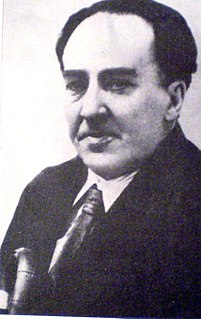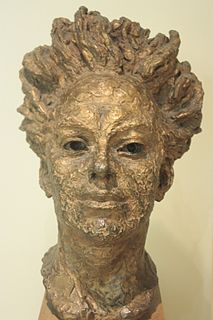A Quote by Fyodor Dostoevsky
A novel is a work of poetry. In order to write it, one must have tranquility of spirit and of impression.
Quote Topics
Related Quotes
When you spend time with your friends, what do you talk about? Those things which made an impression on you that day, that week ... I write stories the same way. Events at home, in school, at work, in the street, these are the bases for a story. Some experiences leave such a deep impression that instead of talking about them at the club I work them into a novel.
Poetry can be criticized only through poetry. A critique which itself is not a work of art, either in content as representation of the necessary impression in the process of creation, or through its beautiful form and in its liberal tone in the spirit of the old Roman satire, has no right of citizenship in the realm of art.
Three characteristics a work of fiction must possess in order to be successful:
1. It must have a precise and suspenseful plot.
2. The author must feel a passionate urge to write it.
3. He must have the conviction, or at least the illusion, that he is the only one who can handle this particular theme.
I always was interested in prose. As a teenager, I published short stories. And I always wanted to write the long short story, I wanted to write a novel. Now that I have attained, shall I say, a respectable age, and have had experiences, I feel much more interested in prose, in the novel. I feel that in a novel, for example, you can get in toothbrushes and all the paraphernalia that one finds in dally life, and I find this more difficult in poetry.







































